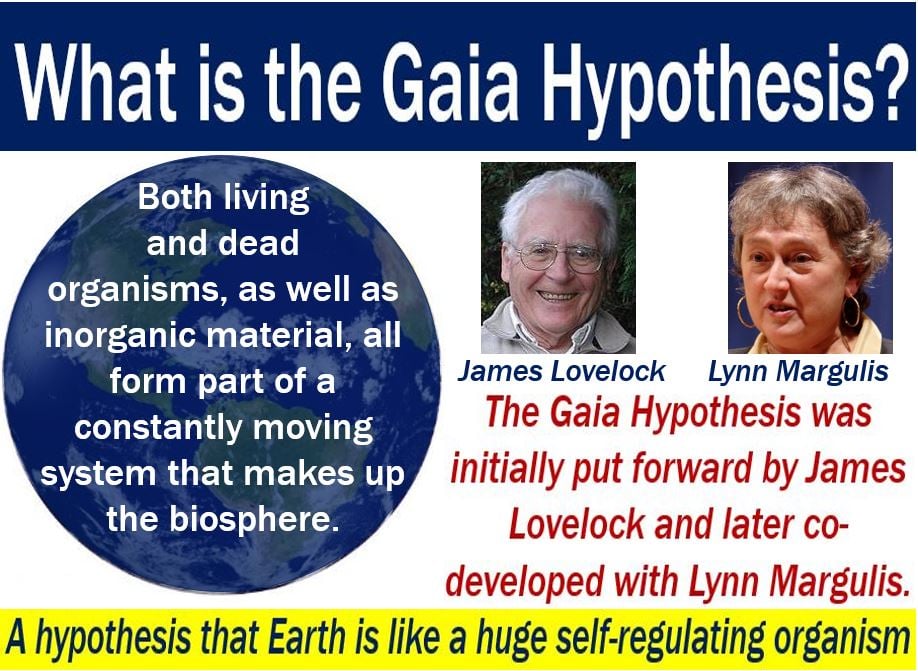The Gaia hypothesis, Gaia theory, or Gaia principle proposes that Earth is far more than just a rocky planet that orbits the Sun. According to the hypothesis, living organisms and the inorganic substances around them have evolved together as a single living system. This single living system greatly affects the conditions and chemistry of our planet.
In other words, the hypothesis suggests that the Earth is like a self-regulating system which can adjust to small and major changes and catastrophes. Furthermore, the planet adjusts in a holistic and ‘intelligent’ manner.
The theory suggests that life and its non-living environment have co-evolved, significantly influencing Earth’s surface conditions and chemistry.
How true is the Gaia hypothesis?
Some scientists believe that Earth’s Gaian system self-regulates atmospheric content, salt levels in our oceans, and global warming. They say that the self-regulation happens automatically.
Why is it that Earth’s living system appears to keep conditions just right for life to exist? In fact, not only to exist but also to thrive.
The Gaia Hypothesis has inspired ideas and practical applications for economic systems and scientific inquiry. It has also inspired ideas for public and regional policy.

Gaia hypothesis and James Lovelock
James Ephraim Lovelock (26 July 1919 – 26 July 2022), an English scientist, environmentalist, and futurist, proposed the Gaia hypothesis in the late 1960s.
Lovelock developed the theory shortly after working with NASA and determining that life on Mars was highly unlikely. His insights into Mars’s atmosphere led him to think more deeply about Earth’s atmosphere and the role of life in shaping it.
American evolutionary theorist and biologist, Lynn Margulis, co-developed the theory in the 1970s. Margulis was a microbiologist at the University of Massachusetts.
Initially, many people criticized the theory; saying that it was teleological. Teleology is the doctrine that final causes exist. People also complained that it contradicted the principles of natural selection.
However, later refinements aligned the theory with ideas from fields such as systems ecology, biogeochemistry, and Earth system science.
Even so, the Gaia hypothesis still has critics today. Most scientists claim that at best, the theory is only weakly supported by available science. In fact, many also say that it is mostly at odds with available science.
The Gaia hypothesis inspired many leading figures since the turn of the century. For example, it inspired Al Gore, Vaclav Havel, John Todd, Freeman Dyson, Elisabet Sahtouris, and Joseph Campbell.
Who was Gaia?
Gaia or Gaea was the ancient Greek goddess of Earth. According to ancient Greek mythology, she was the ancestral mother of all life
In other words, Gaia was the primal Mother Earth goddess. She was one of the Greek primordial deities.
The European Space Agency has a satellite called Gaia.
